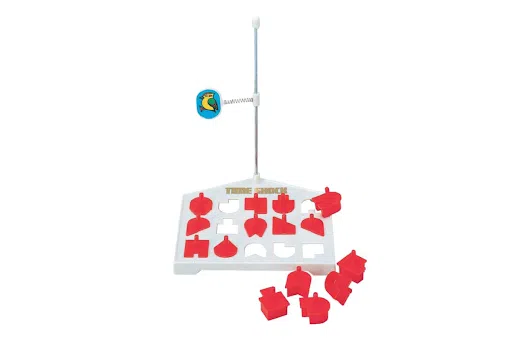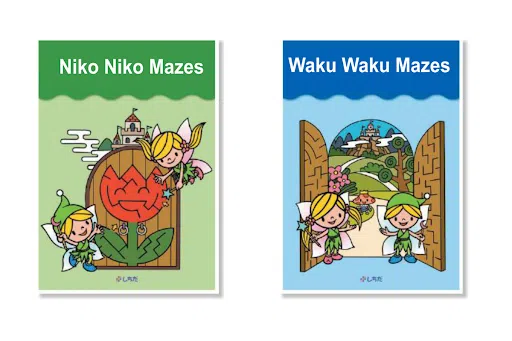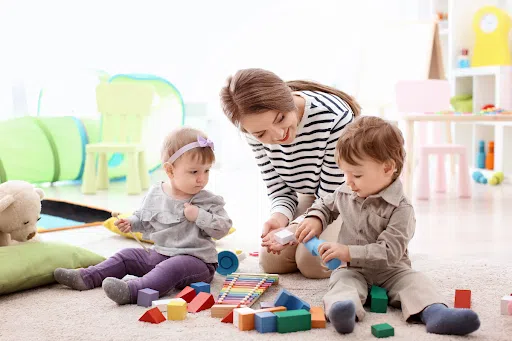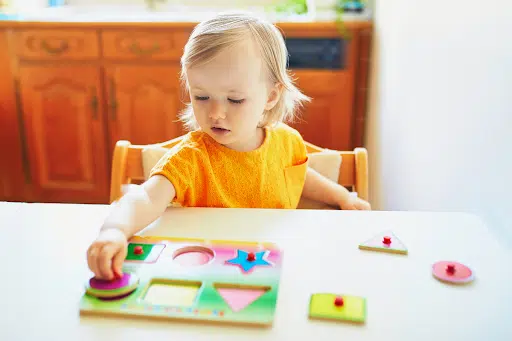
How can you help encourage your child’s critical thinking skills? Our fun and engaging critical thinking activities for kids can nurture these foundational skills from as early as six months old.
What is critical thinking for kids?
Critical thinking involves analysing information, evaluating ideas, and making informed decisions based on evidence and logical reasoning.
Children can benefit greatly from developing their critical thinking abilities.
- Encourages creativity and innovation
- Develops problem-solving skills
- Enhances decision-making abilities
- Improves analytical and logical reasoning
- Boosts self-confidence and self-esteem
- Enables better understanding and communication with others
Critical thinking activities notably help children assess the information presented, evaluate its credibility, and make informed decisions based on their findings.
Honing these abilities also empowers children to overcome negative self-perceptions that might otherwise hinder their growth and focus on their inherent strengths instead.
At Shichida, we believe this foundational skill to be taught from an early age, just like reading and maths. Encouraging analytical thinking in early childhood will equip your child with a valuable tool that they can use to navigate life’s challenges effectively and avoid hasty conclusions or detrimental choices that may negatively impact them.
Critical Thinking Activities for Kids
Critical thinking activities for kids include things like puzzles, logical reasoning games, mazes, asking open-ended questions, and debating.
We’ve put together a selection of simple critical thinking examples for kids that are fun to play at home and suit a range of ages.
Logical Reasoning Games
“The Mystery Bag” game
A fun critical thinking game for kids, The Mystery Bag encourages children to use their critical thinking skills, such as observation, deduction, and logical reasoning.
- Prepare a bag with several small objects inside.
- Have the child reach into the bag without looking and pull out one object at a time.
- Encourage the child to use their critical thinking skills to determine what each object is based on its texture, shape, and other sensory details.
- Ask the child to describe their thought process and reasoning behind their guesses.
- Finally, after all the objects have been identified, discuss any patterns or similarities between the things.
- For a more challenging variation, add a few objects that are not immediately recognisable and ask the child to use deduction and logic to figure out what they are.
Puzzles and Brain Teasers
Puzzles and brain teasers are excellent tools for improving cognitive skills, including critical thinking. These activities challenge children to analyse information, make connections, and think creatively. You can start with simple puzzles, such as jigsaw puzzles, and gradually move on to more complex ones, such as Sudoku or crossword puzzles.
The Shichi Duck Puzzle is a product that can help increase your child’s visual awareness, spatial recognition, memory, attention to detail, concentration, and critical thinking through six different puzzles of increasing difficulty.
Time Shock is a puzzle game that can help your child develop concentration, thinking ability, discernment, and activate their brain by matching fifteen pieces within a time limit.

Mazes
Shichida Maze Series #1: Niko Niko Maze (2-3 years old) encourages your child to develop their writing and drawing ability, thinking ability, concentration, and processing ability through enjoyable activities with mazes of increasing difficulty.
Shichida Maze Series #2: Waku Waku Maze (3-5 years old) helps children develop their ability to move a pencil, look ahead, grasp the bigger picture, and expand their field of vision through enjoyable activities with fun mazes of increasing difficulty.

Open-ended questions
Asking open-ended questions is a great way to encourage a child’s critical thinking skills. Try this example activity:
- Choose a topic that interests your child, such as animals, nature, or sports.
- Ask an open-ended question about the topic, such as “What do you think would happen if all the animals in the world suddenly disappeared?” or “How do you think people can protect the environment?”
- Encourage your child to think creatively and critically about their response. Ask follow-up questions to help them explore their ideas further, such as “Why do you think that would happen?” or “What are some ways we can make a difference?”
- After they’ve shared their ideas, discuss and compare different perspectives and solutions.
- Repeat this activity with different topics and questions to develop the child’s critical thinking skills.
Asking open-ended questions encourages children to consider multiple perspectives and think beyond the obvious.
Debating games
Debating games encourage children to use logical reasoning and critical thinking skills to analyse and defend their choices.
The debating game “Would you rather?” can be played in a group.
- Give your child two options: “Would you rather have a pet dog or a pet cat?”
- Ask them to choose one option and explain why they chose it. Encourage them to use logical reasoning to explain their choice.
- After they’ve made their argument, ask the other children to challenge their opinion by providing counterarguments.
- Encourage the child who made the original argument to respond to the counterarguments and defend their position.
- Repeat this process with other “Would You Rather?” questions.
This game certainly encourages children to use logical reasoning and critical thinking skills to analyse and defend their choices. They also develop communication and listening skills by evaluating the arguments presented by children and responding thoughtfully.
Explore more critical thinking games for kids in Shichida Australia’s online store.
Critical thinking activities for babies
It might surprise you to know, babies as young as 6 months can benefit from critical thinking activities for kids.
Peek-a-boo
When you cover your face with your hands, your baby will begin to understand that just because they can’t see your happy face, it doesn’t mean you’ve disappeared. This concept is known as object permanence and requires thinking logically and understanding that objects can exist even when they are not immediately visible.
Playing with blocks
As your baby plays with the blocks, they learn about cause and effect, spatial relationships, and problem-solving. This helps your child develop the critical thinking they need to approach problems creatively and logically to overcome obstacles.

Starting as young as 6 months old and up to 9 years old, Shichida’s early learning program includes critical thinking activities for kids. These fun and interactive games help your child develop their ability to identify and rely on their own intuition. Children also learn to navigate various types of information, gain a comprehensive understanding of diverse perspectives, and learn how to ask relevant and insightful questions.
Find out more about the critical thinking activities in the Shichida early learning program today.


